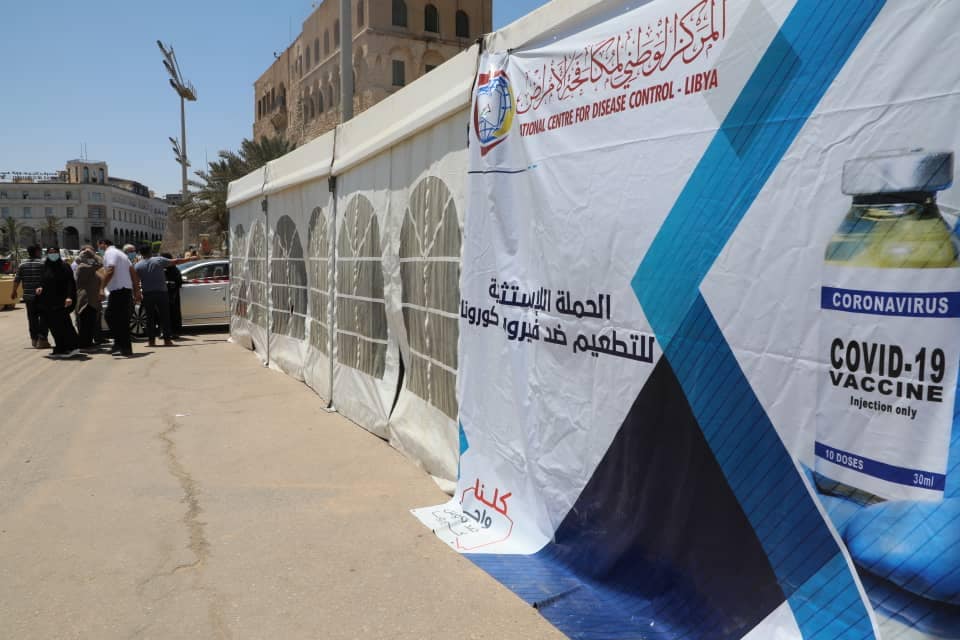By Sami Zaptia.

London, 26 July 2021:
The Official Spokesperson for the House of Representatives, Abdalla Belheeg, announced yesterday that the Elections Laws House of Representatives Committee arrived in Rome on Sunday.
Belheeg said the Committee will remain in Rome until Thursday and will discuss over the next four days the elections laws regulating the upcoming presidential and parliamentary elections to be issued by the House of Representatives. The discussions will be brokered by UNSMIL and with the participation of Libya’s High National Elections Commission (HNEC).
The Official Spokesperson underlined the fact that the committee includes members of the House of Representatives representing all parts of the country.
Analysis
It will be recalled, however, that according to the 2015 Skhirat Libyan Political Agreement (LPA), which is still valid, the HoR must agree with the High State Council (HSC) on any major decisions, including the laws for the 24 December 2021 elections.
The creation of the LPDF
However, since the HoR and HSC were unable since 2014 to reach a consensus to move Libya forward, UNSMIL created the 75-member Libyan Political Dialogue Forum (LPDF) early this year to break the political impasse and extract Libya out of its transitional political status that it has been stuck in since 2011.
LPDF sets 24 December 2021 as date for constitutionally based elections
The LPDF, selected by UNSMIL to represent all of Libya, agreed on a new political Roadmap that included the holding of constitutionally based elections on 24 December 2021. Both the HoR and HSC accepted the LPDF Roadmap. However, it was left to the HoR and HSC to agree on passing a constitutional basis and laws for these elections.
HoR and HSC fail to agree on constitutional basis
While supporting the principle of holding the 24 December elections, the HoR and HSC failed to agree by the deadline of 1 July set by HNEC, on a constitutional basis for the elections. As UNSMIL head Jan Kubis put it on 15 July: They talked the talk about the elections but would not walk the walk.
Furthermore, the LPDF itself through its committees also failed to reach a consensus on a legal basis to present to the HoR and HSC for approval.
A referendum on the draft constitution?
While supporting the holding of elections, the HSC insists on the existing constitutional prescription that says the current draft constitution must first be approved by a public referendum.
A referendum is time consuming?
This is problematic. First, organizing a referendum is time consuming and contradicts the LPDF prescription that the elections must be held on 24 December 2021.
A referendum may reject the draft constitution?
Secondly, the public may vote against the draft constitution in the referendum. This would return Libya to square one and to an indefinite public consultation process in order to get feedback and amend the rejected current draft constitution. In view of Libya’s political record since the 2011 revolution, this process may go beyond 24 December 2021.
The draft constitution is legally questionable?
Thirdly, the draft constitution is, in itself, legally ‘‘unsound’’. The process by which it was drafted was unsound as it excluded Libya’s minorities and would be challenged in the courts and highly likely, the draft constitution would be rejected as a legally ‘‘unsound’’ document – even if a referendum approved it.
Is the HSC dragging its feet?
Hence, going down the road of holding of a referendum on the current draft constitution is likely to open up a can of political worms that will set Libya back another year – or more. Critics of the HSC say it is a delaying tactic by them in an existentialist attempt to preserve their status quo.
The HSC is an unelected body selected in the extraordinary circumstances when the ‘‘Libya Dawn’’ militias conducted a military coup against the Libyan government and parliament in 2014. It was a temporary conciliatory fix by UNSMIL to prevent Libya spiralling out of control and prevent Libya from splitting permanently into two. It is and was meant to be a one-off ‘‘advisory’’ body that will not be reformulated after any elections. Its members will lose their highly paid jobs and unelected political status.
Are the HSC and HoR united in their opposition of the elections?
But equally, the same could be said of the elected HoR. As long as the HoR choose an opposing view on the process of reaching the 24 December elections – they will fail to agree with the HSC on holding the elections on time.
It could be argued that this is precisely what the HoR have done. Together with the HSC, HoR joint committees have met on numerous occasions in Harghada Egypt and in Morocco in an attempt to hammer out agreements on numerous issues – but failed to do so.
The HoR has now decided it is going on a unilateral course of approving a constitutional bases for the elections – without the HSC’s approval. This again is liable to being challenged in the courts.
This move in itself can again be seen as a clever status quo stance to preserve the HoR’s existence beyond December 2021.
Again, when briefing the UN Security Council on 15 July, UNSMIL head Jan Kubis summarised these manoeuvres as follows:
‘‘Because of this failure (to agree a constitutional basis for the 24 December elections) of both the constitutional bodies (HoR and HSC) and the LPDF, the situation in Libya is getting more difficult, confrontational, and tense.
Institutional, political and individual interests stand in the way of agreeing on the necessary legal framework for holding the elections on 24 December 2021, as agreed by the LPDF in its Roadmap, endorsed by the UN Security Council.
Old and new status quo forces (my parenthesis) are using diverse tactics and often legitimate arguments with only one result – obstructing the holding of the elections. My predecessor who had his own experience with similar approaches called them “spoilers” – a correct description given the impact of their approach and manoeuvring.’’
‘‘Several members who appear to be trying to insert “poison pills” that will ensure elections will not happen’’ – Richard Norden
In the same vein, after the Libyan Political Dialogue Forum (LPDF) meeting in Switzerland from 28 June to 2 July failed to reach a consensus on the constitutional basis to hold the December elections by the set deadline of 1 July, U.S. Special Envoy and Ambassador to Libya, Richard Norden, said some were trying to poison the process:
‘‘We have watched the LPDF meetings this week in Geneva closely, including several members who appear to be trying to insert “poison pills” that will ensure elections will not happen — either by prolonging the constitutional process or by creating new conditions that must be met for elections to occur.
Some of these individuals claim to be working on behalf of political leaders who have given the United States clear assurances that they support elections on December 24.
Why the insistence on constitutionally based elections?
It must also be recalled that the LPDF Roadmap insists on not just holding elections – but on holding constitutionally based elections. The reason for this is that the LPDF and the international community want an enabled new Libyan parliament and government that will be able to make fundamental decisions to move Libya forward.
There is no desire to elect yet another ‘‘transitional’’ parliament and government that has limited legitimacy and mandate, which would be handicapped in their manoeuvrability and in their ability to propose, enact and implement legislation that would make fundamental progressive changes for the Libyan people.
Also, it is hoped that a newly elected and mandated parliament and government would be able to reform the security sector, DDR the militias, unify the police and army and impose a monopoly on the legitimate use of force.
Over 51,000 new voters recorded on the electoral register | (libyaherald.com)
Hafter calls on Aldabaiba government to implement the Berlin Agreement in full | (libyaherald.com)
HoR has begun preparing election law: Saleh to Kubis | (libyaherald.com)











